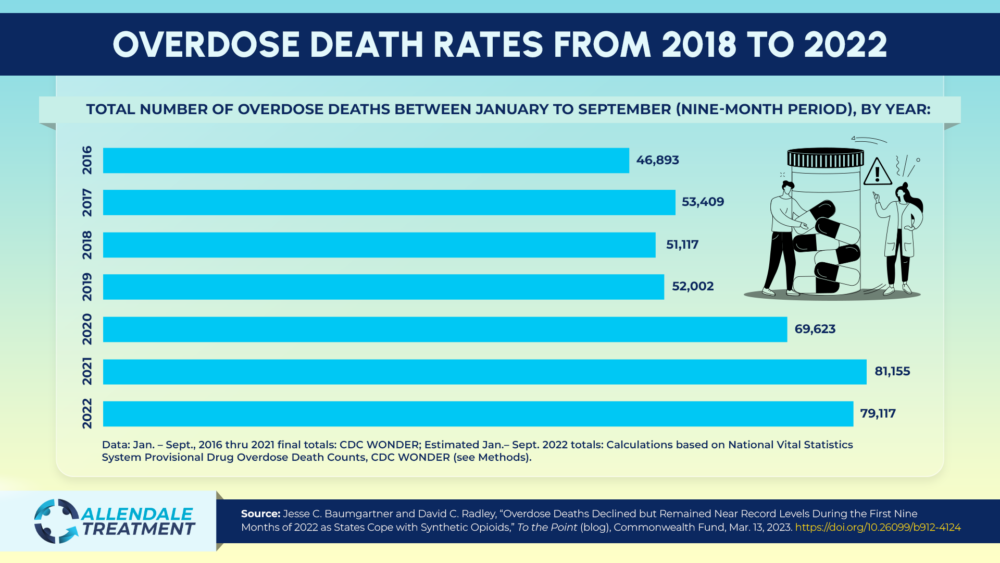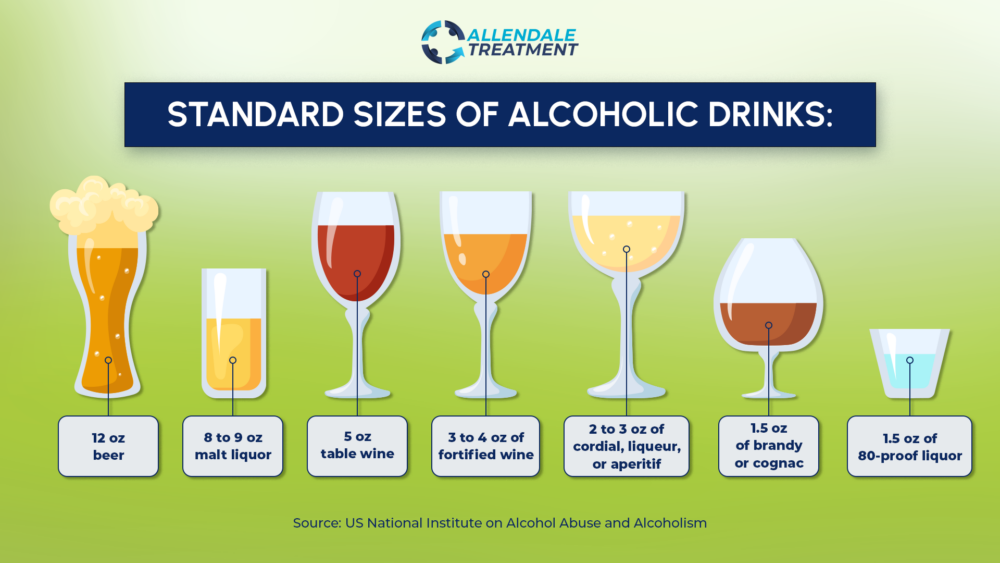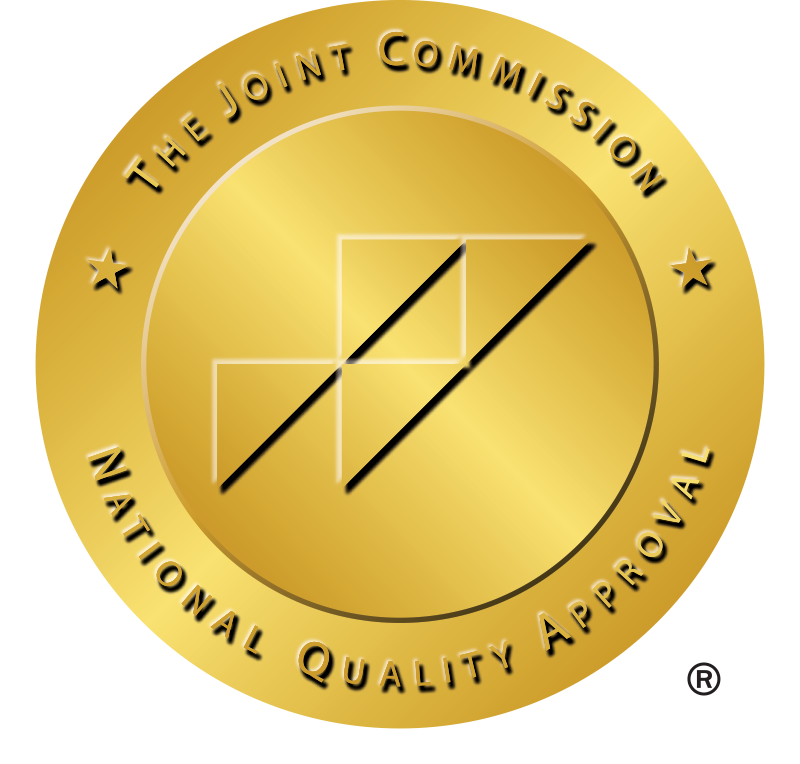The Lingering Impact of the Pandemic on Substance Use Disorders
The Lingering Impact of the Pandemic on Substance Use Disorders
COVID-19 has played a key role in the increase of substance use disorders (SUDs) in recent years. Since the onset of the pandemic, there has been a 23% increase in alcohol use and a 16% increase in drug use among people who had used these substances before the COVID started.
Updated: 2023
Written by: Allendale Treatment
If you or anyone you know are struggling with addiction, call (833) 338-6946 to speak with a professional.
The pandemic also contributed to an increase in behavioral health issues brought on by the chaos and uncertainty of this time especially among those with SUDs. Nearly 50% of individuals that have SUDs also struggle with mental illness, and roughly 13% started using substances again or increased prior usage as a coping mechanism during the pandemic. Over 3 years later, SUD experts are still trying to unpack the long-term impact the pandemic has had on drug and alcohol addiction.
Overdose Rates Continue to Be Higher Post COVID
Drug overdose deaths spiraled upward after the start of the pandemic and claimed nearly 200,000 lives between 2020 and 2021. As people turned to illegal narcotics as a way of dealing with the emotions they were feeling, 13% of Americans said they either started or increased their substance use. At the same time, there was an increase in the amount of fentanyl available in the United States illegal drug supply that contributed to the increase in overdoses and is responsible for nearly 70% of those deaths.

William Stoops, Ph.D., a professor of behavioral science, psychiatry and psychology at the University of Kentucky says that there was a combination of things that lead to the increase in drug use during the pandemic. “There’s sort of a perfect storm of factors that we know increase drug use,” says Stoops, “People are more stressed and isolated, so they make unhealthy decisions, including drinking more and taking drugs.”
Data shows that overdose deaths have decreased since 2020 but are still 50% higher than pre-pandemic levels. While many factors contributed to this decrease including better access to overdose reversal drugs such as NARCAN and the increased availability of mental health services, experts say that some key policy options local, state and federal officials should consider implementing to further reduce overdoses include:
Alcohol Abuse Rates Especially Problematic for American Women
In a study by LifeWorks and the Hazelden Betty Ford Foundation nearly one-third of U.S. residents who drink alcohol said they increased their consumption after the start of the pandemic, and that number is even higher among women. Dr. Leena Mittal, chief of the women’s mental health division in the department of psychiatry at Brigham and Women’s Hospital in Boston says that women faced unique challenges compared to most men which contributed to this increase “Studies have shown the complexities of balancing home, work and caregiving responsibilities during the pandemic has fallen disproportionately on women,” says Mittal.
At the same time, more advertising promoting the benefits of alcohol use to women including as a way to relax from domestic duties and socialize with friends has made alcohol consumption more socially acceptable for women. The problem is that there’s a lot of misinformation about the amount of alcohol that women should be consuming before it negatively impacts their physical health. Women are much more prone to experience adverse health-related issues such as hepatitis, liver disease and certain cancers. Recent studies show that women who consume just 3 alcoholic drinks a week versus women who don’t drink any alcohol, increase their chance of developing breast cancer by 15% and that goes up another 10% for each additional drink they have a day.
While women have been consuming more alcohol during the pandemic, another demographic has experienced an increase in alcohol-related deaths. According to the Centers for Disease Control (CDC) middle-aged men were the most likely group to die from excessive alcohol use in 2020. The death rate was highest for men ages 55 to 64 which was more than 4 times higher than the overall rate. Death rates for women were also highest in the same age group, but three times lower than for men.

George F. Koob, director of the National Institute on Alcohol Abuse and Alcoholism says that there’s a history of people turning to alcohol to cope with traumatic times and it can quickly spiral into alcoholism. “We know that in large-scale traumatic events to the population – like 9/11 or Hurricane Katrina – people historically start drinking more. The pandemic has been, as we all know, a major stressor to our lives,” says Koob. “What we’ve been picking up with numerous small studies is that about 25% of the population increased their drinking and these individuals were people who were drinking to cope with stress. And many people who drink to cope with stress inevitably go on to have an alcohol use disorder.”
Mental Health Services Are More Important Than Ever
According to the World Health Organization (WHO), anxiety and depression increased by 25%, in the first year of the pandemic. While COVID restrictions have been lifted for some time in most areas, people are still struggling with the long-term effects that months of social isolation and daily disruptions to their lives had an impact on them. COVID also affected and limited access to mental health services which caused people to go long periods without treatment. “A number of studies have shown that increased alcohol use in the pandemic has been associated with increased mental health symptoms, even in people who didn’t have prior diagnoses or prior mental health needs,” Mittal said.
As people continue to struggle with their mental health, many companies have invested more money and expanded their mental health offerings for employees through increased access to employee assistance programs (EAPs) or traditional insurance. Some companies have also included SUD-specific treatment options. This is a trend that may continue to increase as one study showed that 32% of the 2,191 respondents polled said they had either relapsed into addiction or knew someone close to them who had.
While it is yet to be determined how much longer the lingering impact of the pandemic will have on individuals’ mental health, smaller crises connected to COVID such as inflation which is having a significant impact on the current economic state and recent layoffs – highlight the need for ongoing access to behavioral health treatment. In one recent survey, 61% of respondents struggling with addiction said that they considered the current economic climate as a significant trigger for anxiety, stress, and trauma that contributed to their relapse.
If you or anyone you know are struggling with addiction, call (833) 338-6946 to speak with a professional.


